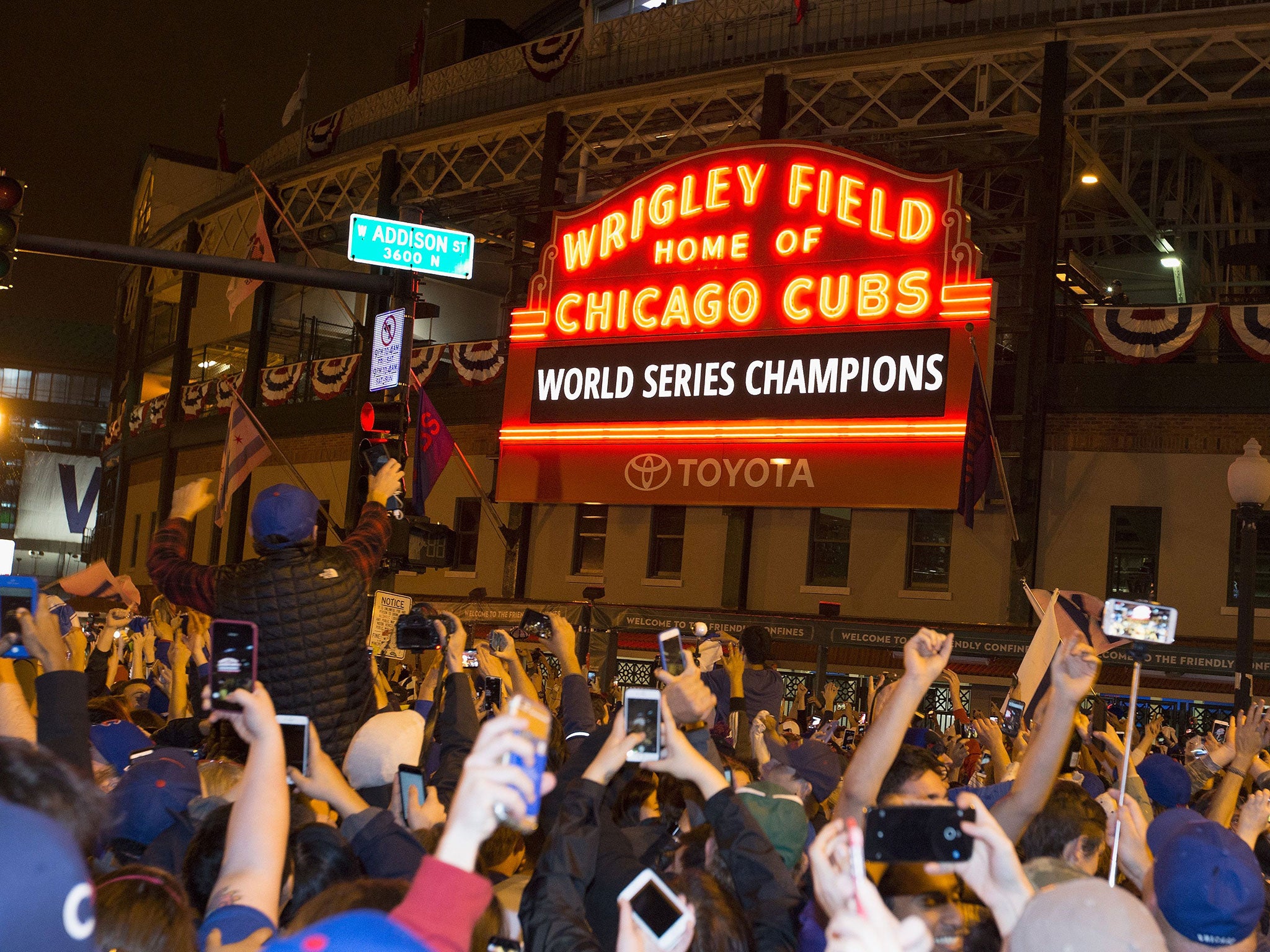How the Chicago Cubs' World Series triumph reveals the vision of Liverpool owner John W Henry
The Chicago Cubs World Series win for the ages, ending an 108-year drought, demonstates that Henry certainly knows how to recruit a general manager

Your support helps us to tell the story
From reproductive rights to climate change to Big Tech, The Independent is on the ground when the story is developing. Whether it's investigating the financials of Elon Musk's pro-Trump PAC or producing our latest documentary, 'The A Word', which shines a light on the American women fighting for reproductive rights, we know how important it is to parse out the facts from the messaging.
At such a critical moment in US history, we need reporters on the ground. Your donation allows us to keep sending journalists to speak to both sides of the story.
The Independent is trusted by Americans across the entire political spectrum. And unlike many other quality news outlets, we choose not to lock Americans out of our reporting and analysis with paywalls. We believe quality journalism should be available to everyone, paid for by those who can afford it.
Your support makes all the difference.The place baseball occupies in Liverpool Football Club owner John W Henry’s heart was clear from the first day he turned up at Anfield a little over six years ago, wearing a World Series baseball ring on the fourth finger of his right hand. The Chicago Cubs World Series win for the ages, ending an 108-year drought, reveals that he certainly knows how to recruit a general manager.
Theo Epstein was his man at the Boston Red Sox, where the wait for a World Series had been 86 years, and now that the same decision-maker has broken both curses in the US’s North East, Henry’s recruitment vision has to be acknowledged.
Epstein – a 28-year-old Yale graduate when Henry hired him in 2004 – was certainly not the obvious choice. His grandfather and great uncle wrote the screenplay for ‘Casablanca’. His father, Leslie Epstein, was the novelist, professor and man of letters who wrote the groundbreaking ‘Life and Death in the American Novel’ – a critical classic. Yet it is a generally accepted fact that the highly intelligent, baseball mad scion of the Epstein literary dynasty played the most significant part in the Red Sox World Series victory of 2004.
When he took over ownership of the Red Sox in 2002, the commodities trader Henry had mastered the intricacies of the futures market to amass a fortune but his approach to running baseball was prudent. Epstein fitted that mould. As assistant general manager, he was asked to recruit his own boss and almost secured the Oakland A’s Billy Beane, whose story of success using sabremetrics is now the stuff of Hollywood. When Beane had a last-minute change of heart, Henry promoted Epstein instead. That was how baseball was introduced to the individual who gave a drunk interview to match them all after the win over the Cleveland Indians.
He was younger than most of Henry’s players but his college education had inculcated him in the work of Bill James, the trailblazer in the field of statistical performance analysis. He didn’t let Henry and his co-owner Tom Werner down.
They say that Epstein has always had the luck of the Irish. In 2004, his Red Sox team had to fight back from three games to none down. His 2016 Cubs team faced a 3-1 losing deficit. There was also a serendipity about his Cubs draft picks, which all the sabremetrics and scouting in the world cannot guarantee success with. They can always go wrong.
But in Chicago as in Boston, he displayed a vision for how to mould a team with personalities which balance each other out and gel. Anthony Rizzo, Kyle Schwarber and Kris Bryant provided a youthful spear of power hitting. Veterans were placed around them. Epstein also spent big on two players he could trust - Jon Lester and John Lackey. “The team made sense,” one observer said on Thursday. “Every player was there for a reason. Epstein identified the young players he needed, went out and got the older ones that complemented them.”
Henry’s attempts to bring the Epstein culture to Liverpool has been more difficult. He hired Frenchman Damien Comolli as director of football because Beane told him he was the one football professional who shared the same philosophy as the two of them and Epstein.
"What Billy meant is we are all dedicated to finding and using every advantage no matter how small," Henry said at the time. "We don't rest. We'll look at stats no one else will look at, employ scouting in a way that has a compelling organisational context, question everything and everyone and ensure we have the best player development curriculum and protocols."
Liverpool know now that the more dynamic and unpredictable sport of football makes the now 42-year-old Epstein’s use of data less valuable but it continues to work for baseball. “Epstein,” The New York Times said on Thursday, “is the Cubs’ top baseball decision-maker; the man who put together a team and an ethos capable of dashing history’s long reach. Red Sox and Cubs fans were the longest suffering at the time, and Epstein has given closure to both.”
Join our commenting forum
Join thought-provoking conversations, follow other Independent readers and see their replies
Comments